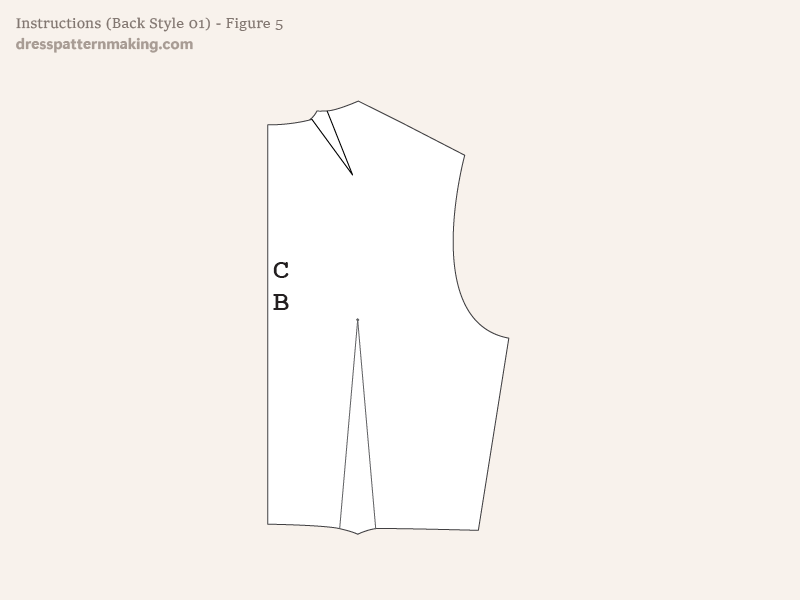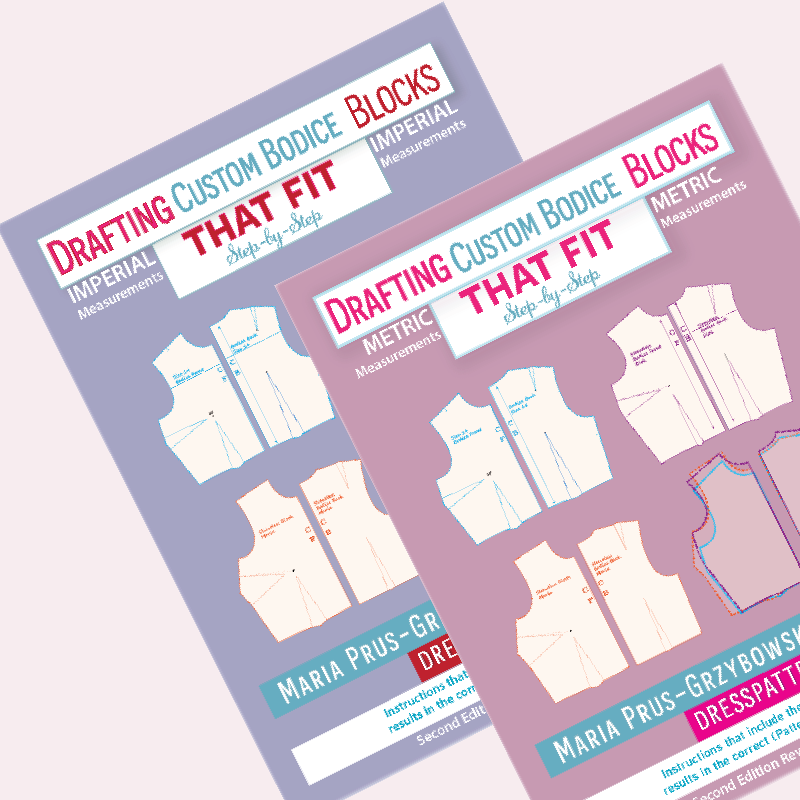Style 01 (Back)
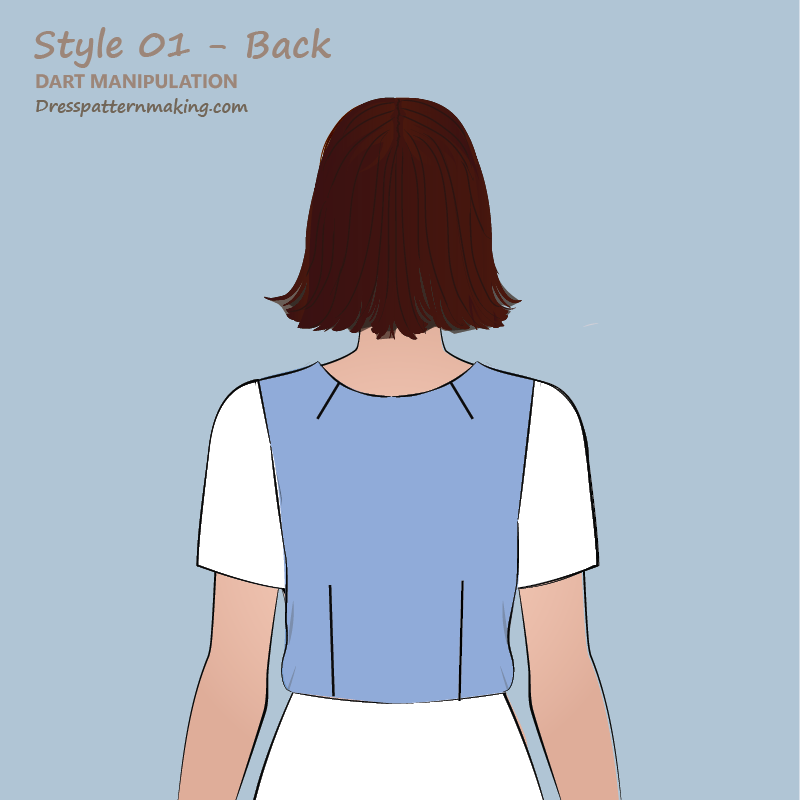
The bodice back of this garment has a waist dart and a neck dart. Using the Back Bodice Block, this style is created by moving the shoulder dart into the neckline.
Example: Outcome
Figure 1 shows the block being used on the left, and the pattern that will be created (Back Style 01) on the right.
Note: The actual pattern would need seam allowance or cutting instructions added; this has not been done here we are just covering the theory of manipulating darts.
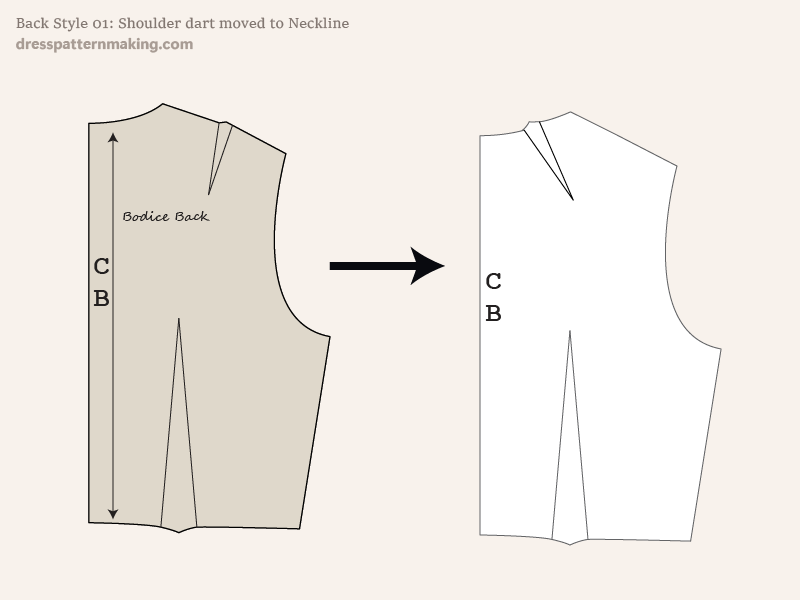
Instructions (Back Style-01) - Figure 1
In the instructions, color is used for emphasis, so you can see more easily what I am referring to. You will be using a hard (4H-6H) pencil. Holding the block firmly in place so it doesn't move:
- trace the outline of the block onto paper
- mark the dart legs
- mark the dart points
You can lift your block up and put it aside.
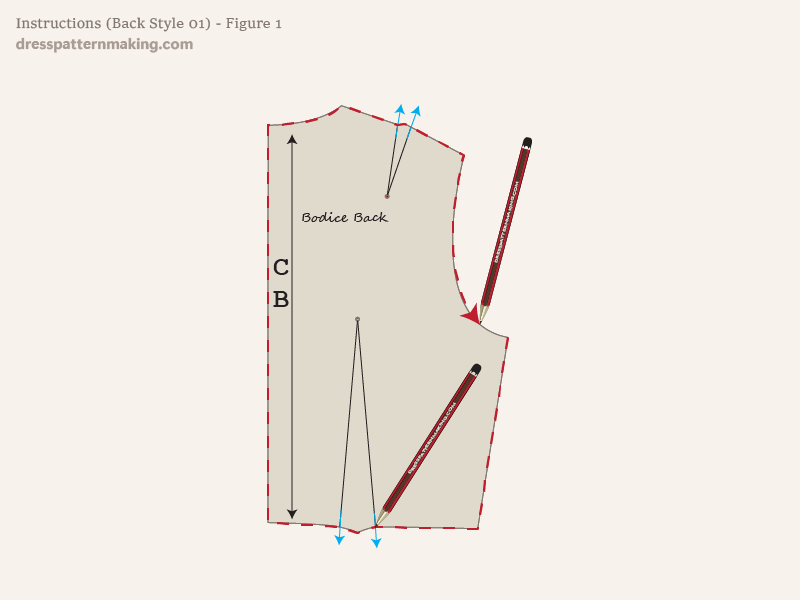
Instructions (Back Style-01) - Figure 2
- draw your dart legs (shown in red)
- draw a line from between the two dart points (shown in blue)
- measure down from the CB neck point for a quarter of the CB measurement, then draw a line at right angles across the block. This is the shoulder blade level.
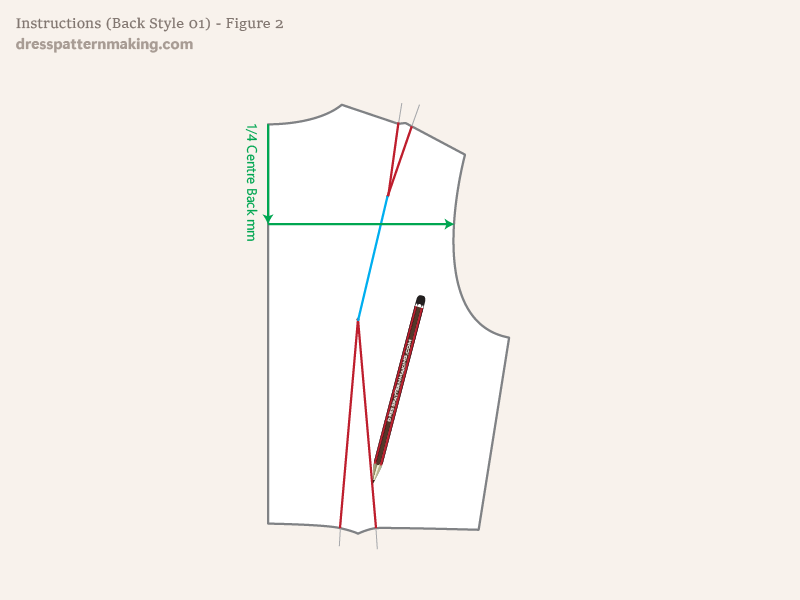
Instructions (Back Style-01) - Figure 3
In the image below have marked the points A, B, C & D on the block to assist in the instructions. You do not have to write these on your block. Note that A, C & D relate to the points where the dart leg meets the edge of the block, as shown by the arrow tips.
- Draw a new dart line from the neckline (point A) to meet the shoulder blade line where it meets the line that joins the two dart points (Point B).
- Draw a line from point C to point B.
- Cut out the block shape.
- Cut out the shape from A to B to C. (You will have 2 pieces).
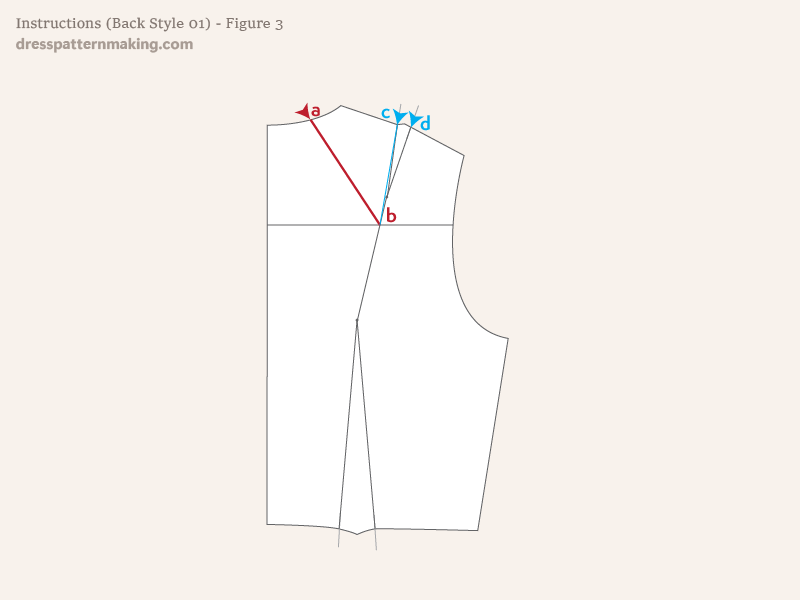
Instructions (Style-01) - Figure 4
- Pivot the piece (A-B-C) to close the shoulder dart (what was point C meets point D).
- put some paper underneath in order to secure the pieces together
- secure with sticky tape
- true the shoulder line (shown in red)
- draw the dart (shown in blue)
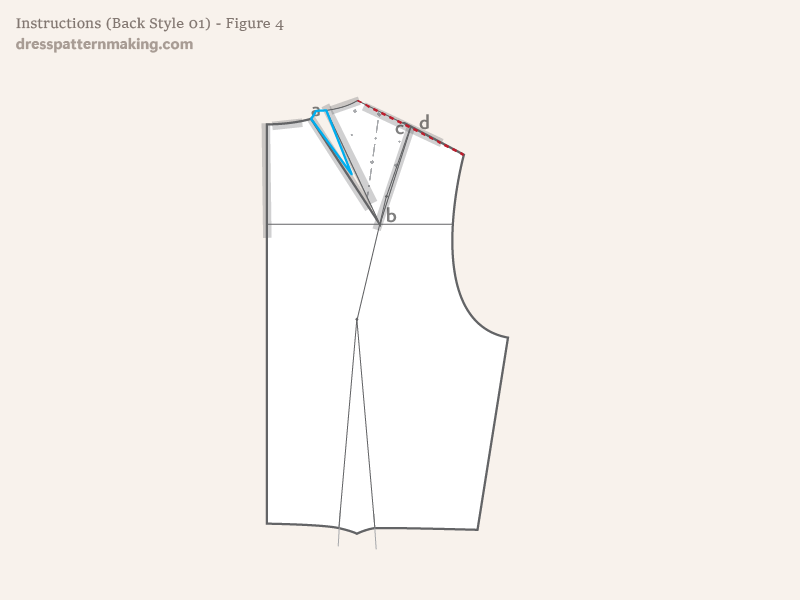
Instructions (Style-01) - Figure 5
- Cut out again.
If this was a pattern, you would also need to add seam allowance, label, mark the grainline, etc.
